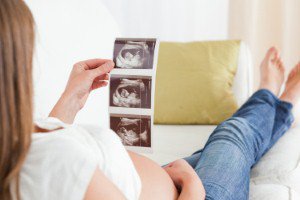Now that you're preparing for pregnancy, you might be wondering how you're going to fare as a woman in her 30s. Is your body still primed for ovulation? Have you finally gained enough hold on your life to welcome a new addition? Will your relationship suffer from the stress of a baby? These are the types of questions you may be asking yourself, so here are some answers about pregnancy in your 30s to help you out.
For many women, having a baby in their 30s is a happy medium. Although the quality of your eggs starts to decline at age 30, it's a gradual process that takes place over the next five years or so, meaning you should still have a good chance of getting pregnant before you're 35. However, as soon as you hit this age, your body won't be as fertile, which is why many experts recommend trying for a baby as soon as you decide you're ready – especially if you want to have more than one child.
As for as the pros of reproducing in your 30s, it's generally the decade that makes the most sense. You're more likely to have a career that you've settled into and a stable income, which means you'll have something solid to come back to if you continue to work after you have children. You'll still feel young and energized enough to keep up with your kids, and you'll have had plenty of time to develop a strong relationship with your partner, making you more likely to be solid parents. You're probably pretty comfortable with yourself at this age as well, which means you're more likely to trust your decisions when it comes to parenting.
Of course, the cons of having kids when you're in your 30s revolve mostly around your body's child-rearing ability. As you creep closer to 35, you might feel pressured about having a baby, and stress could impact your ability to conceive. After 35, you'll also have an increased risk of miscarriage, birth defects, C-sections and complications as the chromosomal defects of your eggs increase.
